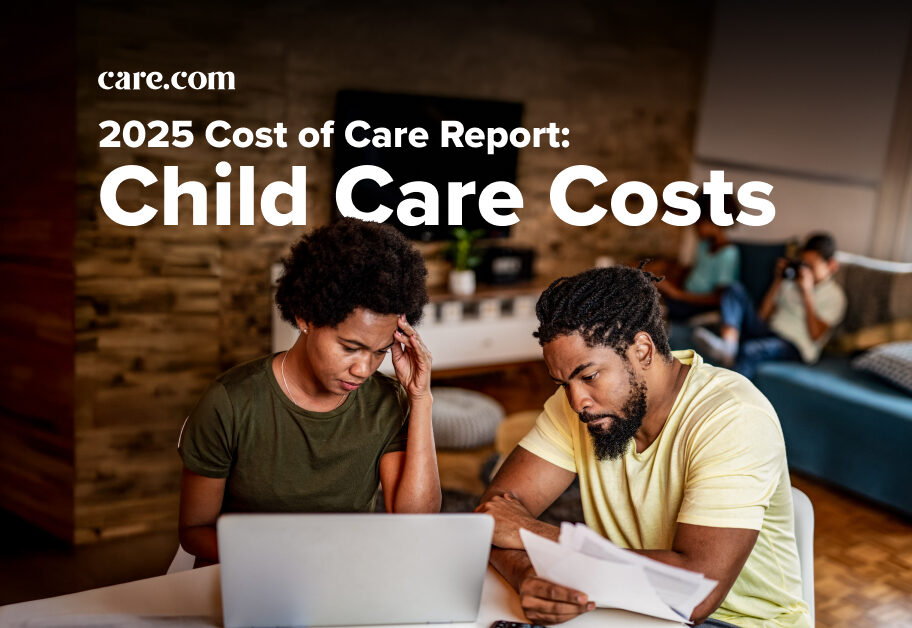It may not feel this way at the moment, the LGBTQ+ community has come a long way in recent decades. From the end of Don’t Ask, Don’t Tell in 2011 to winning national marriage equality from Supreme Court’s Obergefell v. Hodges decision in 2015, same-sex couples have gained significant rights — especially when it comes to legal protections for spouses and children.
Unfortunately, many of the changes were made through policies, executive orders and lawsuits, all of which can be reversed somewhat easily. In these turbulent times, here’s why LGBTQ+ parents (or parents-to-be) need to take steps to legally protect their families and how they can do so.
Why now’s the time for LGBTQ+ parents to think about legal protections
Congressional Democrats have tried several times to pass The Equality Act to guarantee more lasting protections, but it’s failed to gain enough bipartisan support.
When Roe v. Wade fell in 2022, Justice Clarence Thomas’ opinion suggested that other major cases with similar legal basis, including Obergefell, also be reconsidered. Despite other justices voicing disagreement, Thomas’ threat sent further shockwaves across America.
As a result, Democrats were able to pass the Respect for Marriage Act in 2022 with bipartisan support. Political compromise left the final legislation without guaranteed national marriage equality. Instead, it’s a backstop. If Obergefell is struck down, individual states can ban same-sex marriage again — but if a couple marries in a state that allows it, all states and the federal government must recognize that marriage.
While estate planning was essential for LGBTQ+ parents before current legal protections existed, it’s still vital should the political winds shift or an issue arise in the family-building process. “No one can predict if there will be further fallout, or if marriage equality will go the way of Roe v. Wade, but same-sex parents might be the most at risk,” says Mitch Mitchell, associate counsel at digital estate planning company Trust & Will.
Join Care for free
Legal protections LGBTQ+ parents should pursue
Ensure legal parenthood through adoption
No matter how a same-sex couple brings a child into their lives, there are legitimate worries about being treated equally as parents. “One of the biggest concerns we have had with protecting our family has been ensuring that both parents retain rights over all of our children,” says Kia Carvalheira, a military spouse who shares three children with her wife Cassandra.
If a same-sex couple adopts a child that neither are biologically connected to, both go on the adoption decree. That’s legally binding, giving both adults legal custody, says Ellen Kahn, senior director of programs and partnerships at Human Rights Campaign (HRC). “It’s less certain if you’re a same-sex couple that’s building a family through assisted reproduction and just one has a biological connection to the child.”
“One of the biggest concerns we have had with protecting our family has been ensuring that both parents retain rights over all of our children.”
— Kia Carvelheira, parent of three
When the Obergefell decision in 2015 required all states to recognize same-sex marriage, some couples who had a child via assisted reproduction could now both be listed on a birth certificate — even if only one parent was biologically-connected.
There was some lingering confusion about legal parentage, but Sarah Warbelow, legal director for the Human Rights Campaign, says there shouldn’t be following Pavan v. Smith in 2017. In this case, the Supreme Court ruled it was unconstitutional for Arkansas to ban both spouses in a same-sex couple to appear on their child’s birth certificate.
Even still, Warbelow says some states have continued to pose challenges and refuse to view a non-biological parent as a parent. Kahn adds, “There’s a sense of ultimate security if both parents are on the birth certificate,” which isn’t the case since a birth certificate isn’t legally binding like an adoption decree.
The key to ultimate protection is for both parents to legally adopt the child, Mitchell says. “If only one of you is the adoptive parent, or if only one of you has legal guardianship of your children, the surviving parent may face child custody obstacles should one of you pass away unexpectedly,” he explains. “If your child (or children) are adopted by both partners, decisions regarding the custody of your children won’t be left to the courts.”
Carvalheira remembers feeling immense relief when both she and her wife finally both legally adopted their eldest, Conner, now 11. He’s Carvalheira’s biological nephew, and when she adopted him prior to marriage equality, her partner wasn’t considered her spouse and couldn’t adopt him with her. Once they wed, they both adopted him.
Protection tip: If only one parent is biologically connected to the child, it’s important for the non-biological parent to legally adopt their child, says Warbelow. “We understand it’s very insulting, but it gives you that added level of security,” she says. She adds that some states have differing laws, as not all allow second-parent adoption/or step-parent adoption, and requirements and the degree of invasiveness varies.
Kahn notes that the process of second-parent adoption can cost thousands of dollars, but those who can go through this legal process should.
Avoid legal pitfalls with assisted reproduction
LGBTQ+ couples who build a family through assisted reproduction or a surrogate rather than adoption face additional legal concerns. Warbelow recommends consulting with a local lawyer specializing in family planning or surrogacy, especially since requirements vary by state.
“Generally, that attorney can assist you in ensuring any potential parental rights of sperm donor, the surrogate, or egg donor have all been voluntarily terminated in advance of a child coming into existence,” Warbelow explains. “That way there are legal protections in place, and it cuts off the ability of a donor or surrogate to assert parental rights.”
Kahn says these legal steps are sometimes baked into the process. If a couple is using a surrogacy firm or assisted reproductive practice, there’s a formalized process that includes the legal termination of the donor’s rights, she explains.
“Where folks fall into sticky spots is when they don’t have the financial means to pay for an expensive family-building process,” Kahn says, especially since so little is covered by insurance. For example, she says, some same-sex female couples who can’t afford professional services choose to ask a friend for sperm and do the insemination at home.
It’s their right to do that, Kahn says, “but some of those legal steps are skipped, and while sometimes it never becomes an issue, it could.”
“Generally, [a family planning] attorney can assist you in ensuring any potential parental rights of sperm donor, the surrogate, or egg donor have all been voluntarily terminated in advance of a child coming into existence.”
— Sarah Warbelow, legal director, Human Rights Campaign
Carvalheira also has 6-year-old twins that she birthed through assisted reproduction. While both she and her wife are listed on the birth certificates, they had to take precautions to ensure this. The couple made sure to use a sperm donor and go through their doctor’s office for the inseminations.
“That’s because the state of Kansas, where we were living and the twins were born, required lesbian parents to become inseminated at a doctor’s office,” Carvalheira recalls. “Otherwise, the donor — whether a bank or friend — would retain parental rights over the non-birthing parent.”
Protection tip: “It’s very important that the parental rights are officially terminated where that’s the intention,” says Warbelow. If you’re using an assisted reproductive service or firm, ask what their procedure is to ensure the donor’s future parental rights are voluntarily terminated. Hire a lawyer to ensure there’s no risk of a donor or surrogate claiming parental rights.
Ensure your wishes are followed in the event of your passing
One of the greatest fears of same-sex couples before Obergefell was that upon death, other family members or courts wouldn’t treat their partner or children as their legal family.
This is still a risk for couples who aren’t legally married and don’t have estate planning documents. Without them, you die intestate. “This means that your partner may not be legally entitled to anything — this could include bank accounts, property, children, retirement accounts and other assets,” Mitchell says. “The only way to fully ensure your family is protected is by having an estate plan clearly defined.”
Those who are legally married should still solidify all of their wishes in writing, Mitchell says, to ensure your partner has the ability to make decisions for you and your children.
To protect their families, Mitchell recommends same-sex couples obtain these estate-planning documents:
- Will: Every adult over 18 should have a will, Mitchell says, which outlines who you want to receive your assets and belongings, and your wishes for guardianship of your children. Without formalized documents, courts may step in and make decisions for you, perhaps giving preference to the family of origin or another biological parent. “If you share a child, you can avoid misinterpretations about who should step in by formally nominating your spouse or partner to be the legal guardian of any children if you pass away or become incapacitated,” Mitchell says.
- Durable Financial Power of Attorney (POA) – This authorizes a designated person to make decisions regarding your financial affairs if you’re incapacitated or can’t make them for yourself, Mitchell explains.
- Living Will: Also called an Advanced Healthcare Directive, Mitchell says this states your end-of-life care wishes should you become incapacitated and unable to express them.
- Medical Power of Attorney (POA) – “This document gives authority to another person — for LGBTQ+ couples, it’s often a partner or spouse — to make any and all medical decisions for you if you’re unable to do so,” Mitchell says.
- HIPAA – Filling out this form is essential for LGBTQ+ couples, Mitchell says, which gives healthcare providers consent to discuss and disclose your health condition and records with a designated person. “This authorization can be incredibly important should medical records ever be needed to confirm or establish mental capacity or medical condition after your passing in order to execute your wishes,” he notes.
It’s ideal to review and update your estate plan whenever you have a major life event, Mitchell says, such as a marriage, divorce, the birth or adoption of a child or death of someone who’s in your plan. In lieu of a life event, he recommends reviewing documents every three to five years.
The bottom line
It’s possible there will be no legal steps backwards for same-sex marriage or parental rights. Warbelow says we’re a long way out before the Supreme Court hears a case challenging the constitutionality of same-sex marriage, if ever.
Warbelow says even if the Supreme Court hears a challenge and reverses Obergefell, it doesn’t mean existing marriages will be impacted. “There’s legislation now — The Respect for Marriage Act — that provides federal protections and requires states to continue to recognize those marriages,” she says.
Nonetheless, LGBTQ+ couples would still do well to take extensive (and sometimes expensive) precautions to legally protect their families. While this is a tragic fact, those who take these measures will rest assured that should the worst happen, their partner and children will be OK and treated no different from any other family.





